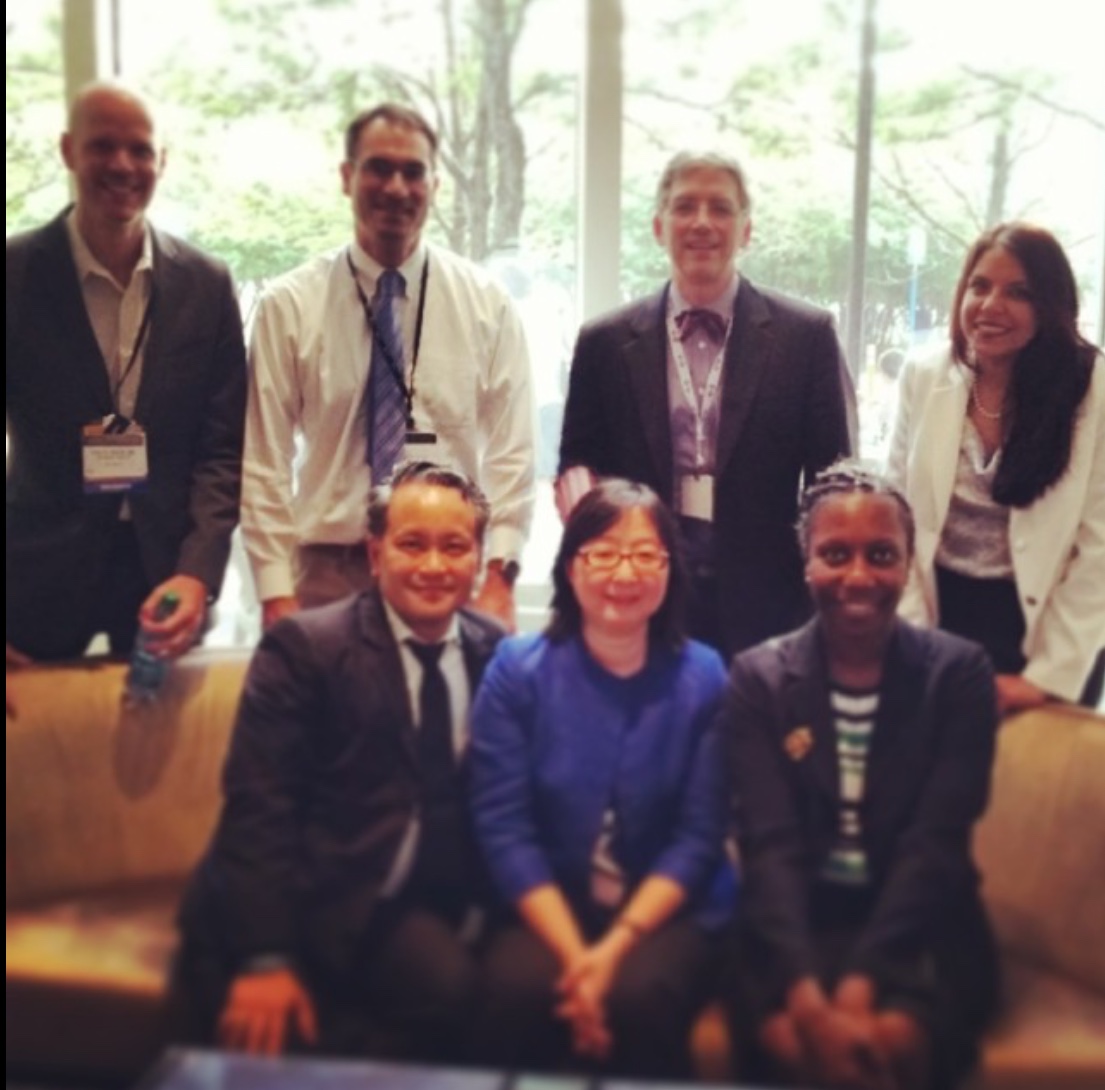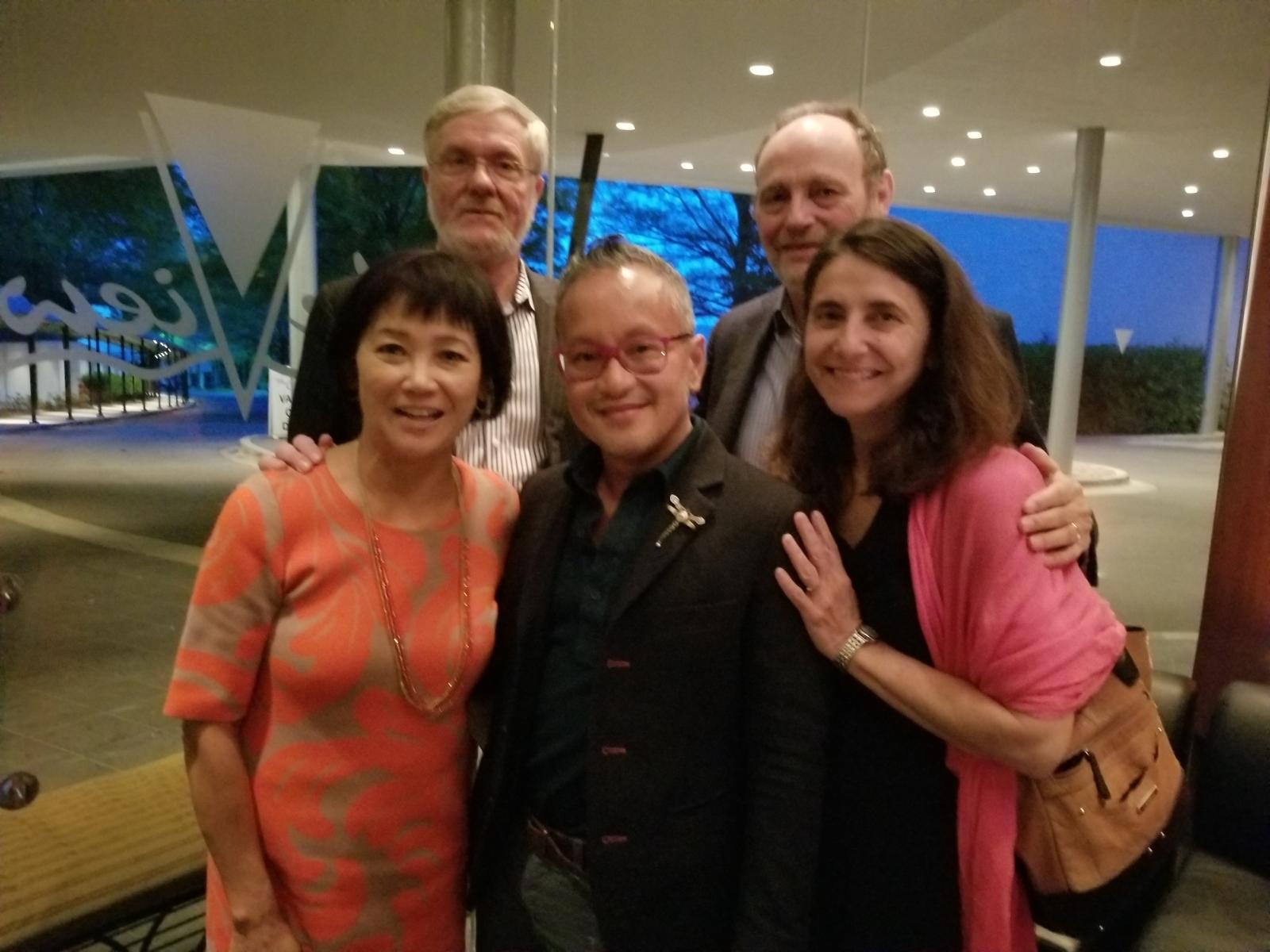I find writing cathartic. Medicine is filled with emotional experiences, some lighthearted and others draining. We meet people at their best, and yes, sometimes we meet them at their absolute worst. It’s a privilege to do this as a profession—to bear witness to humanism, whether it arises from interactions with our patients and their families, or from interactions with our colleagues.
Yet, sometimes events transpire that leave me speechless, when there are no words for me to express, no answer to that question that is asked so many times a year: What happened? Although there are still several weeks left in 2018, events have left me speechless twice this year: the deaths of two women, well before their time.
I met Dr. Karen Meneses in 2015 when I became a member of the CDC’s Advisory Committee for Breast Cancer in Young Women (ACBCYW), where we advised the CDC on ways to educate and advance awareness of breast cancer in this population, including the importance of understanding familial and genetic risk. At the end of the first meeting Karen and I exchanged business cards and I remember even then looking forward to working with her very much. It wasn’t until I got home that I realized who she was: Associate Dean for Research at the School of Nursing, Senior Scientist and Co-Leader of the Cancer Control and Population Sciences Program at the UAB Cancer Center, Senior Scientist in the Center for Healthy Aging, Minority Health & Disparities Research Center, Center for Outcomes & Effectiveness Research, Comprehensive Cardiovascular Center, Center for Palliative and Supportive Care and Center for Clinical and Translational Sciences. She also was a groundbreaking researcher in the field of cancer survivorship, having led the Breast Cancer Education Intervention,1 which has since become the model of cancer survivorship education nationally. I remember being shocked that someone so accomplished could be so gracious and friendly (I also started to worry that my appointment on ACBCYW was a fluke—thanks, impostor syndrome!). I’ve since been to UAB to meet with Karen and her wonderful group, and I’ve had the privilege of speaking at the SurviveAL Young Breast Cancer Survivors workshop and at the UAB Comprehensive Cancer Center. I relished our conversations, ranging from the professional to the personal. I had identified yet another mentor and I looked forward to finding new ways to collaborate.
I was in Kyoto at the International Gynecologic Cancer Society meeting when I heard Karen had died. My mentor and friend Michael Birrer told me, assuming I had already heard. I was shocked. Karen looked so great during my last visit. There was so much she was doing, and so much I had envisioned we could do together. To this day I cannot believe she has died.
In the beginning of November I found my concentration splintered. I had committed to several talks, had several trips to make, and I was fixated on the upcoming midterm elections. I had my own patients to care for, and some of them were not doing well. I thought everything would simmer down after November 6: travel completed, only a few more talks to do, and I could concentrate once more on my family and the coming holiday season. On the morning of November 7 I was in clinic, and had just received word that a patient had died in hospice. Before I could process that bit of information, my partner, Mary Anne Fenton, let out a gasp at her workstation, motioning me to come over. She looked at me with shock on her face: “Arti Hurria is dead.”
Everything became a blur. Over Mary Anne’s shoulder, I read the email sent by William Dale and Supriya Mohile to the Cancer and Aging Research Group. Arti had been killed in a car accident. The words on the page were filled with the grief of colleagues that loved her. And I too was filled with the same loss.
Arti and I started our careers in medical oncology together, as fellows at Memorial Sloan Kettering Cancer Center. I like to think we “grew up” as oncologists together. I still remember late nights on our leukemia rotation working under our attending, David Scheinberg. Arti was always smarter than me—and I am not in any way ashamed to admit it. She served as our Chief Fellow alongside Manish Shah. I could find no other colleagues more deserving of that privilege. As years passed, I witnessed Arti’s transformation of oncology. She helped to grow geriatric oncology into prominence. She helped start the Journal of Geriatric Oncology with Matti Aapro and served as its Editor in Chief. I was proud to see her awarded ASCO’s B.J. Kennedy Award in 2013 and to see her rise to Professor and George Tsai Chair in Geriatric Oncology at the City of Hope. Yet, even after all these years, Arti made time for everyone. Running into her at the ASCO Annual Meeting was one of the highlights every year for me. We’d exchange hugs and catch up about our families and our careers. She seemed to know about the small changes I had made in my own career, as if it mattered to her. And that was her gift—when you were around her, she made you feel special, if only for a moment.
Several years ago, Mina Sedrak approached me to mentor him in a project involving social media. His academic passion was to find a way to help older people with cancer engage using digital technologies. He had told me his mentor in this would be Arti Hurria. To be included in the same sentence as Arti, as mentor, will go down as one of the highest forms of flattery I have received.
To all of us who mourn, I know we will all continue the work of both of these pioneers. I am just lucky enough to have spent time with each of them and to be touched by their intellect, their commitment, and most of all, their humanity. They have left the world a better place, and we must do all we can to continue their work, and their legacy.
Still, I will miss you both. I cannot believe you’re gone.
Reference
- Meneses KD, McNees P, Loerzel VW, et al. Transition from treatment to survivorship: effects of a psychoeducational intervention on quality of life in breast cancer survivors. Oncol Nurs Forum. 2007;34:1007-16.

A partial reunion of our MSKCC fellowship class at the 2014 ASCO Annual Meeting (left to right, standing: Kyle Holen, Gerry Azzolli, David D’Adamo, Arti Hurria; seated: me, Eunice Wang, Sybil Anderson).

UAB 2018: me with Karen Meneses, her partner, Patrick McNees, Michael and Elizabeth Birrer in Birmingham, AL, in April 2018.


Recent posts